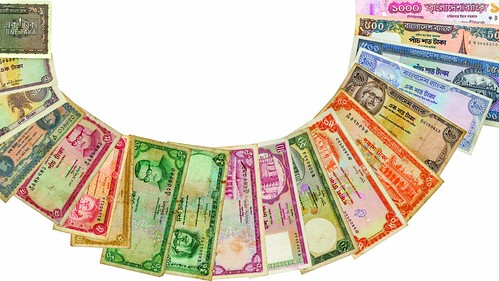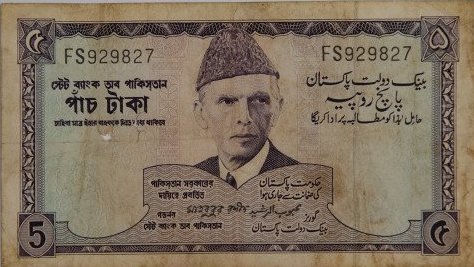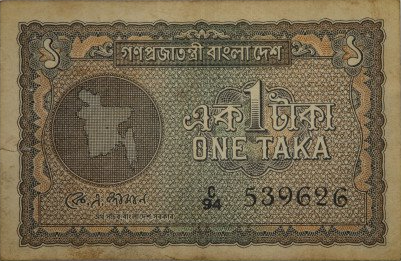
PREV ARTICLE
NEXT ARTICLE
FULL ISSUE
PREV FULL ISSUE
THE EVOLUTION OF BANGLADESHI BANKNOTESHere's an article on the history of banknotes in Bangladesh. -Editor Every time the political regime or the governor of the Bangladesh Bank of this country changed, so did our currency notes. Achia Khanom Likhon, the curator of Taka Museum of the capital said, "Money is one language that everyone, whether s/he is educated or not, understands. So currencies are a great medium of communication and that's why we find certain messages and images on the notes." During our research for this story, we came across an interview where Kazi Golam Mustafa, the designer of our very first currencies and postal stamps, told the interviewer from BTV that he has created art that people carry in their pockets every day. It made us think, how have these exchangeable paper notes evolved over time? What is the story behind them? After the partition of India and Pakistan, the banking system brought two branch offices of the erstwhile State Bank of Pakistan established in July 1948: one was in Bangladesh (former East Pakistan) and the other was in West Pakistan (present Pakistan). But then the East Pakistan wing used the Pakistani rupee as we didn't have any currencies of our own. Bangla was one of the two official languages of the Pakistan union between 1956 and 1971. So in East Pakistan, the Pakistani rupee was used but it had taka written on it. The central bank of Bangladesh or the Bangladesh Bank was formed on 16 December 1971 after the liberation war ended. But the banknotes of Pakistan continued to be used in Bangladesh for approximately three months after independence. Eventually, the authorities decided to issue our very own banknotes. On 4 March 1972, the official notes or taka of Bangladesh were introduced, replacing the Pakistani rupee. And from then on, in the last 50 years, Bangladesh Bank has printed currency notes of over 10 series and in an array of designs. Currently, Bangladesh has eight currency notes (Tk5, 10, 20, 50, 100, 200, 500 and 1000). Printing of Tk1 and 2 have already stopped; and slowly the use of these notes that are already in use is being replaced with coins and the Tk5 note is also on its way into oblivion.
To read the complete article, see:
Wayne Homren, Editor The Numismatic Bibliomania Society is a non-profit organization promoting numismatic literature. See our web site at coinbooks.org. To submit items for publication in The E-Sylum, write to the Editor at this address: whomren@gmail.com To subscribe go to: https://my.binhost.com/lists/listinfo/esylum All Rights Reserved. NBS Home Page Contact the NBS webmaster 
|



